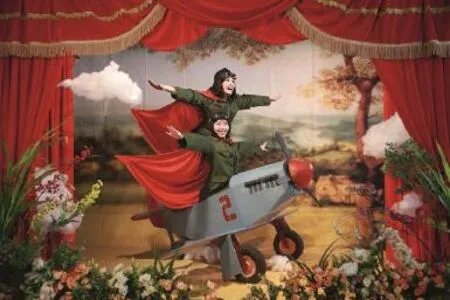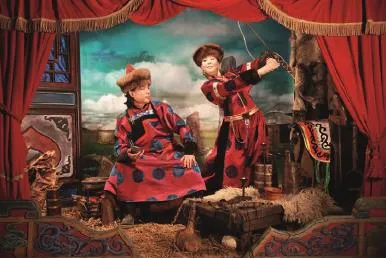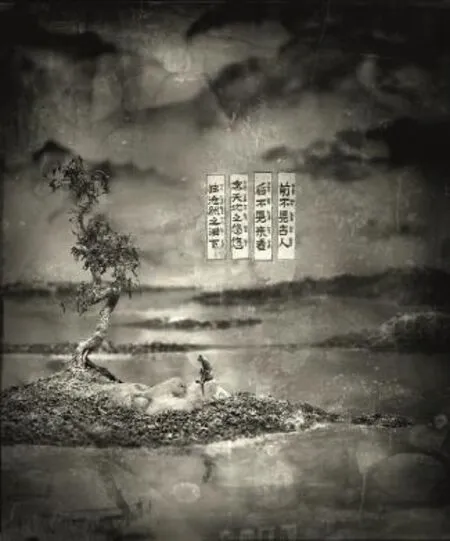MALEONN'S IMAGINARIUM
MALEONN'S IMAGINARIUM

Maleonn's Photo Studio No.8, 2013
Born and raised in Shanghai, Ma Liang (馬良), or Maleonn, majored in graphic design at Shanghai University's College of Fine Arts. In his works, surrealist elements abound, such as “Portrait of Mephisto” (《墨菲斯特的肖像》), “A Midsummer ight's Dream” (《仲夏夜之夢》), referencing Western erature such as Goethe'sFaustand Shakespeare's famous rama. He also draws inspiration from Chinese culture. he series “Second-hand Tang Poems” (《二手唐詩》) mploys classical Chinese motifs to portray the imagery and mbolism of Tang Dynasty (618-907) poems. Stark, eerie, nd desolate, the series is in great contrast to the portraits from his mobile photo studio, the former a black-andwhite nightmare, the latter a warm, pleasant dreamscape.
When Maleonn, fi rst announced his project “Studio Mobile” (移動照相館) on Sina Weibo in 2011, he called out: “I am saving up for a truck; the inside will be my photo studio. I want to drive it to different cities, park it in parking lots in the suburbs, and notify people on Weibo for the locals to come to the studio for a photo.” By the end of 2012, he and his mobile studio embarked on a road trip across China from Shanghai to Beijing, Chongqing, Guangzhou, and eventually back to Shanghai, stopping in dozens of cities and photographingthe portraits of 1,600 people for free.

Studio Mobile (two artists in Tianjin who used to be college mates), 2012

Studio Mobile (artist couple in Hohhot, Inner Mongolia), 2012

Second-hand Tang Poem No. 4, 2007
The theatrical poses, bright colors, and the otherworldly backdrops provide a tableau where ordinary people can pretend to be anything they want: magicians, pilots, superheroes, or just teachers and police off i cers. The recurring elements of distorted clocks are a nod to the surrealist traditions of Dali, yet the subjects in his portraits, from a faceless man to a burning fl ame, create a distinctive Chinese aesthetic.
The techniques Maleonn employs evoke memories of a time passed. Before digital cameras made individual and family portraits accessible to all, parents, children, and couples made photo studio visits an almost religious ritual, a ceremonious endeavor to capture the present at its most beautiful, albeit falsif i ed by the fake waterfall or picturesque landscape on the backdrop. Maleonn's mobile photo studio brings art into people's humdrum lives, giving ordinary people—be they elementary school pupils, accountants, or white-collar workers—a utopian wonder world in which they can embrace their free-spirited, childlike fantasies.
Like the “Ma Liang” in Chinese folklore whose magical brush turned drawings into reality, Maleonn's project gives his subjects a chance to experience a surreal world in the real world.- WEIJING ZHU (祝偉婧)

